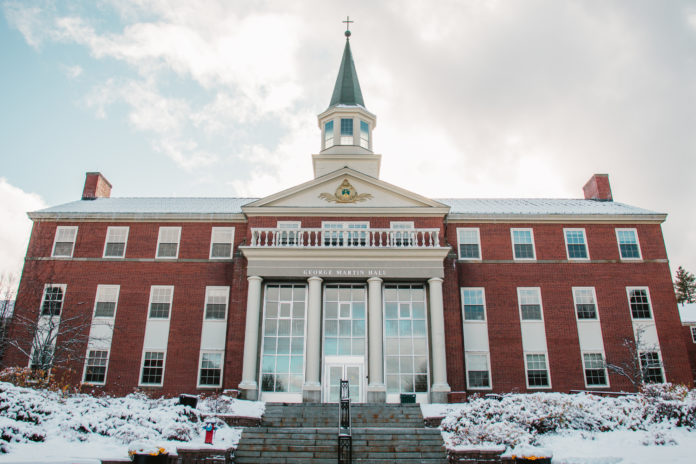

In an email to students on Dec. 22, St. Thomas University announced classes will move online on Jan. 10 and resume in-person on Jan. 24 due to the new COVID-19 variant, Omicron.
Jeffrey Carleton, associate vice-president of communications, said the decision was made over the past few days. Kim Fenwick, vice-president of academic and research, was in contact with public health and New Brunswick’s four public universities, said Carleton.
“We knew that this was a possibility,” said Carleton. “But certainly the message from public health over the last several days has been their concern about the potential impact that the new variant could have.”
The university recommends that students who live in residence, who went home for the break, delay their return to campus until the weekend of Jan. 22 to 23.
Carleton said if this is not an option for students, residences and food services will still be open.
All administrative and support services will be available in-person and online on Jan. 4. Professors were instructed by STU to reach out to students to inform them of how classes will be structured for the first two weeks.
Classes previously scheduled to start in person will temporarily be online before resuming on Jan. 24. But, Carleton said if any changes need to be made to that start date, students will be notified with as much notice as possible.
He said STU will continue to be in contact with public health over the holidays to monitor the situation.
Université de Moncton and Mount Allison University, along with some other universities in Atlantic Canada, will also start their winter semesters online, according to statements made last week. University of New Brunswick also announced Wednesday that classes will be held online until Jan. 24.
“We’re aware of what other universities are doing, but we also looked at our own circumstances,” said Carleton. “When public health starts talking about concerns that they have about the community and the potential for community spread and the impact on the healthcare system, that certainly caused us to make the final decision we made.”
